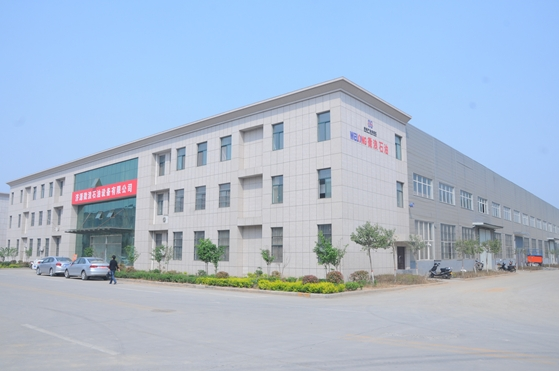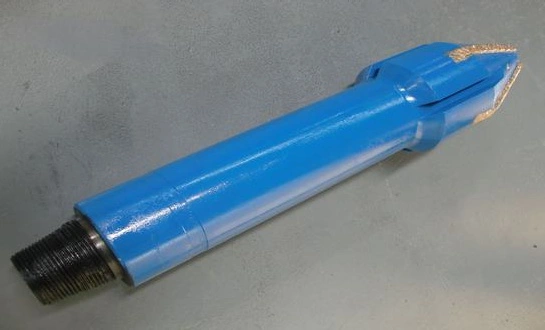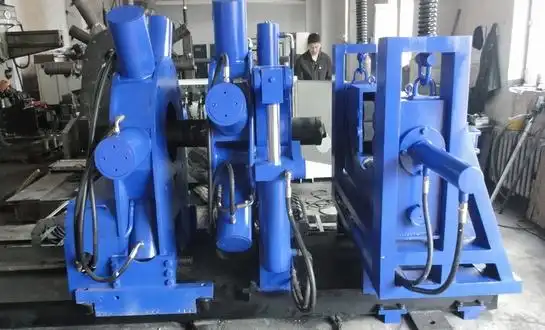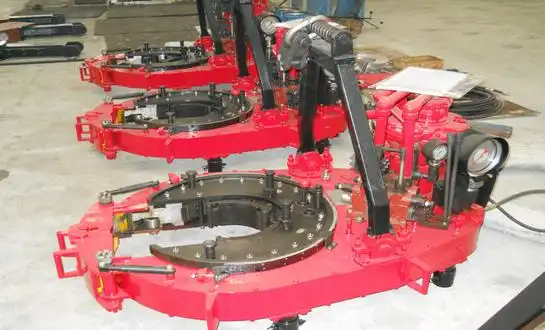Importance of Forged Shafts in Railway Construction Equipment
Enhanced Strength and Durability
Forged shafts exhibit exceptional strength and durability, which are paramount in the demanding environment of railway construction. The forging process aligns the metal's grain structure, resulting in a more uniform and dense material composition. This enhanced structure enables forged shafts to withstand higher loads, resist fatigue, and maintain their integrity under extreme conditions. In railway construction equipment, where components are subjected to constant stress and vibration, the superior strength of shaft forging translates to increased reliability and reduced risk of failure.
Improved Safety and Performance
The use of forged shafts in railway construction machinery significantly enhances safety and performance. These components can better withstand sudden impacts, torsional forces, and bending stresses that are common in construction operations. The improved structural integrity of forged shafts reduces the likelihood of catastrophic failures, which could otherwise lead to accidents, injuries, or costly project delays. Moreover, the enhanced performance characteristics of forged shafts contribute to more efficient and precise operation of construction equipment, allowing for better control and maneuverability in challenging railway construction environments.
Cost-Effectiveness and Longevity
While the initial cost of forged shafts may be higher than alternative manufacturing methods, their long-term cost-effectiveness is undeniable. The superior durability and resistance to wear and tear result in extended service life, reducing the frequency of replacements and associated downtime. This longevity is particularly valuable in railway construction projects, where equipment reliability is crucial for meeting tight schedules and budgets. Additionally, the reduced maintenance requirements of forged shafts contribute to lower overall operational costs, making them an economically sound choice for construction companies involved in railway projects.
Specific Applications of Forged Shafts in Railway Machinery
Excavators and Earth-Moving Equipment
Excavators and other earth-moving machinery are indispensable in railway construction for tasks such as grading, trenching, and foundation preparation. Forged shafts are extensively used in these machines, particularly in high-stress areas like boom arms, bucket linkages, and drive systems. The exceptional strength and wear resistance of forged shafts ensure that these critical components can withstand the immense forces encountered during digging and lifting operations. This reliability is crucial for maintaining productivity and safety in railway construction sites, where equipment downtime can lead to significant project delays and increased costs.
Cranes and Lifting Equipment
Cranes play a vital role in railway construction, handling heavy materials and components such as bridge sections, rail tracks, and precast concrete elements. Forged shafts are essential in various parts of crane systems, including the main hoist drum, slewing mechanism, and outrigger supports. The high strength-to-weight ratio of forged shafts allows for optimal load-bearing capacity while minimizing the overall weight of the crane. This balance is crucial for maintaining stability and maneuverability, especially when working on uneven terrain or in confined spaces often encountered in railway construction projects.
Tunnel Boring Machines
Tunnel boring machines (TBMs) are highly specialized equipment used in railway tunnel construction. These massive machines rely on forged shafts in various critical components, such as the main drive shaft, cutter head support, and screw conveyors. The extreme conditions inside a TBM, including high torque, abrasive materials, and constant vibration, demand components with exceptional strength and durability. Forged shafts meet these demanding requirements, ensuring the continuous operation of TBMs in challenging underground environments. The reliability of these components is crucial for maintaining the efficiency and safety of tunnel boring operations, which are often on the critical path of railway construction projects.

Material Considerations for Railway Shaft Forging
Selection of Appropriate Steel Grades
The choice of steel grade is crucial in the production of forged shafts for railway construction equipment. Commonly used grades include AISI 4140, 4340, and 8620, each offering specific advantages in terms of strength, toughness, and wear resistance. For instance, AISI 4340 is often preferred for its excellent combination of strength and toughness, making it suitable for heavily loaded shafts in excavators and cranes. The selection process considers factors such as the anticipated loads, operating temperatures, and environmental conditions specific to railway construction sites. Advanced alloy steels may be employed for particularly demanding applications, offering enhanced performance characteristics at the cost of increased material and processing expenses.
Heat Treatment Processes
Heat treatment is a critical step in the manufacturing of shaft forging for railway construction machinery. Processes such as quenching and tempering are employed to achieve the desired mechanical properties. Quenching involves rapidly cooling the forged shaft to create a hardened structure, while tempering subsequently relieves internal stresses and improves toughness. The specific heat treatment parameters are carefully controlled to achieve the optimal balance of hardness, strength, and ductility required for each application. For shafts used in high-wear applications, such as those in tunnel boring machines, additional surface hardening treatments like induction hardening or carburizing may be applied to enhance wear resistance while maintaining a tough core.
Quality Control and Testing
Rigorous quality control measures are essential in the production of forged shafts for railway construction equipment. Non-destructive testing methods, such as ultrasonic testing and magnetic particle inspection, are routinely employed to detect any internal or surface defects that could compromise the shaft's integrity. Mechanical testing, including tensile strength, impact resistance, and fatigue testing, is conducted to verify that the forged shafts meet or exceed the specified performance criteria. Additionally, dimensional checks and surface finish inspections ensure that the shafts conform to the precise tolerances required for their intended applications. These comprehensive quality control procedures are crucial for ensuring the reliability and safety of railway construction machinery operating in challenging and high-stakes environments.
Source: CHINA WELONG-Oilfield tools Manufacturer
FAQ about Shaft forging
What are the key advantages of shaft forging over other manufacturing methods?
Shaft forging offers several advantages over alternative manufacturing methods such as casting or machining from bar stock. The forging process aligns the metal's grain structure, resulting in improved strength, toughness, and fatigue resistance. This enhanced structural integrity makes forged shafts ideal for high-stress applications in railway construction equipment. Additionally, the forging process allows for near-net-shape production, reducing material waste and machining time. The superior mechanical properties of forged shafts contribute to increased equipment reliability, extended service life, and improved safety in demanding railway construction environments.
How does the material selection impact the performance of forged shafts in railway construction machinery?
Material selection plays a crucial role in determining the performance characteristics of forged shafts used in railway construction equipment. Different steel grades and alloys offer varying combinations of strength, toughness, and wear resistance. For example, high-carbon steels may provide excellent hardness and wear resistance but can be more brittle, while alloy steels like AISI 4340 offer a better balance of strength and toughness. The choice of material depends on the specific requirements of each application, considering factors such as load-bearing capacity, operating temperatures, and exposure to corrosive environments. Proper material selection ensures that forged shafts can withstand the extreme conditions encountered in railway construction while maintaining optimal performance and longevity.
What quality control measures are essential for ensuring the reliability of forged shafts in railway construction applications?
Ensuring the reliability of forged shafts in railway construction applications requires a comprehensive quality control process. Key measures include: 1. Non-destructive testing: Techniques such as ultrasonic testing and magnetic particle inspection are used to detect internal and surface defects. 2. Mechanical testing: Tensile strength, impact resistance, and fatigue testing verify the shaft's performance characteristics. 3. Dimensional and surface finish inspections: These ensure compliance with precise tolerances required for specific applications. 4. Material composition analysis: Verifies that the correct alloy and grade of steel are used. 5. Heat treatment validation: Confirms that the proper heat treatment processes have been applied to achieve the desired mechanical properties. 6. Documentation and traceability: Maintains records of all manufacturing and testing processes for each forged shaft. These rigorous quality control measures are essential for guaranteeing the safety, performance, and longevity of forged shafts in critical railway construction equipment.
In conclusion, shaft forging is a critical process in the manufacturing of reliable and high-performance construction machines for railway use. The superior strength, durability, and performance characteristics of forged shafts make them indispensable in various railway construction equipment, from excavators and cranes to tunnel boring machines. By carefully considering material selection, heat treatment processes, and implementing rigorous quality control measures, manufacturers can produce forged shafts that meet the demanding requirements of the railway construction industry. As the industry continues to evolve, the importance of high-quality forged shafts in ensuring the safety, efficiency, and success of railway construction projects cannot be overstated. For more information on shaft forging and other oilfield products, please contact us at oiltools15@welongpost.com. Welong is committed to providing top-quality components for the oil and gas industry, including specialized forged shafts for various applications.





